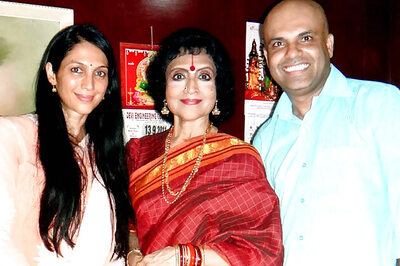
views
Well over 40 per cent of India’s population is under 18 years of age. But the country spends only about 3 per cent of its GDP on education, but every national policy, since 1968, underscores the need for increasing the budget to 6 per cent of the GDP.
India can demonstrate its responsibility towards the future of our children, by increasing the allocation for the crucial sector. It is also crucial to scale up policy interventions and provide academic support for vulnerable children, scholarships, training the trainers, remedial classes, infrastructure upscaling etc to ensure that children do not drop out of school, and youth is employable.
Unless our demographic dividend is adequately educated and skilled, we cannot use this disposition of being the world’s youngest country to our advantage. Besides education and skilling, health and nutrition are paramount.
Pandemic Pushed Learning, Skilling in Back Gear
The pandemic has left, 42 per cent of children between 6-13 years without any access to remote learning during school closures, according to a UNICEF report. Among kids who have access, 80 per cent of children aged 14-18 years reported lower levels of learning than when physically at schools, stated the report. Due to a wide range of factors, from gender inequality to loss of household income, about 10 million girls are at the risk of dropping out of formal education, estimates a report from the National Right to Education Forum.
Read | Union Budget 2022 Should Look Beyond Mainstream Education, Bridge Digital Divide: Experts
The pandemic also showcased how important the next of kin are in securing wholesome development and care for children who have lost parental care. This includes empowering the caregiver with capacity building, livelihood options, awareness on health and nutrition, childcare and development, child security and safeguarding.
Nutrition for Kids’ Body & Mind
In addition to the above, another vital component of wholesome childcare and development is nutrition. Hunger disproportionately affects children, who need a balanced and nutritious diet for their physical, mental, intellectual, and social development. It is inevitable that we have to strengthen the delivery of programmes and services around nutrition support to women, children, and the vulnerable.
The pandemic has only made visible the case for increasing investment in the public sector as far as healthcare delivery is concerned, as the role of public sector institutions in the fight against the pandemic was commendable.
The focus must also be on mental health funding too. According to a 2019 report of Indian J Psychiatry “at any given point of time, nearly 50 million Indian children suffer from mental disorders.”, and “80 – 90 per cent have not sought support.”
Monitor Schemes’ Impact Before Allocation
Another important aspect that suggests allocation of funds is the monitoring and evaluation of various schemes that the Government has implemented for those impacted by the pandemic. This is crucial in order to gauge impact and build on the experiences gathered.
Be it with education or health, the budget should also have provisions for monitoring of the implementation of the schemes, to ensure that the desired objectives are met. Though we must continue to place the emphasis on increasing sectoral allocations, we must also realize that tackling the woes of health and education of children calls for multi-sectoral thinking and an all-of-society approach. Issues like income inequality, loss of livelihood and income, and gender inequality have their own bearing on parental care available for children. Hence, collaborative approaches and cross-sectoral interventions involving the Centre, State Governments and NGOs are important for achieving better outcomes.
— The author is Sumanta Kar, Secretary-General, SOS Children’s Villages of India
Read all the Latest Education News here




















Comments
0 comment